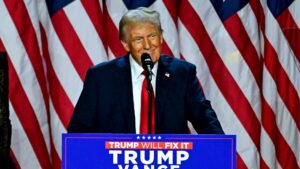Freedom Network Report

According to the United Nations report, 1700 journalists were killed worldwide from 2006 to 2024.
The International Day for the Prevention of Crimes Against Journalists was observed around the world last week. The Secretary General of the United Nations issued a special statement regarding the protection of journalists from violence. President Asif Ali Zardari, Prime Minister Shahbaz Sharif and provincial chief ministers also issued similar statements on the occasion of the day.
In the statement of the Secretary General of the United Nations, special importance was given to Gaza regarding the day to protect journalists from torture. Israeli forces have made it a hobby to kill journalists reporting in Gaza, southern Lebanon and the West Bank. The report released on this occasion by CPJ, an international organization for the protection of journalists, stated that last year 134 journalists were killed by Israeli forces during their professional duties.
According to the United Nations report, 1700 journalists were killed worldwide from 2006 to 2024. According to the Committee to Protect Journalists report, 66 journalists were killed in Pakistan from 1992 to 2024, but the number of journalists killed in Gaza, South Lebanon and the West Bank last year was the highest in the last 24 years. is
The news of the killing of 134 journalists was published and broadcast from time to time in the western media, but the media of America and Europe do not cover the news of the killing of journalists against Israel, then this media directly blames the Israeli soldiers for the killing of these journalists. I don’t understand, but the alternative media of Europe and America mentions the sacrifices of these journalists in a very clear way.
Freedom Network, a non-governmental organization that seeks awareness for freedom of the press, has published a comprehensive report on crimes committed against journalists in Pakistan under the title of 2024 Impunity Report. Freedom Network’s stalwarts Iqbal Khattak, Aftab Alam and Adnan Rahmat painstakingly released comprehensive reports on crimes against journalists across the country. The report states that last year was a brutal year for Pakistani journalists.
This report states that the killing of journalists and incidents of violence against journalists did not decrease even last year. This report states that the culture of violence against journalists in the country is very old and this year too, the situation for journalists remained dangerous. Freedom Network created the Media Impunity Index for the first time. This index will analyze efforts to prevent crimes against journalists. According to the report of Freedom Network, 6 journalists were targeted for killing this year, while 57 incidents of crimes against journalists took place.
According to the report, from the district courts to the Supreme Court, important steps have been taken to protect journalists. The experts who compiled this report say that most actions against journalists took place in Sindh. (21.37% of 57 cases) Thus Islamabad has become the most dangerous city for journalists. The report also noted that many of those who committed crimes against journalists received very light sentences from the courts. In most of the cases, the real culprit could not be revealed. The situation for journalists is worst in Pakhtunkhwa province.
Two journalists were killed in last one year in Sukkur district. Despite the various announcements of the government, Pakistani journalists are suffering from severe difficulties. A Freedom Network report study shows that 47 percent of the actions against journalists are directly responsible for state institutions. Similarly, fighters of political parties were involved in 12 percent of the incidents of violence against journalists. Similarly, 16 percent of the incidents involved various types of violent groups.
Unknown forces tortured 12 percent of journalists. The report further states that 16 percent of the attacks against journalists were carried out by unknown groups. International human rights organizations, especially the European Union, are constantly demanding legislation to protect journalists.
The government of Sindh is the first government to implement the Journalist Media Protection Act for the protection of journalists. Government of Sindh enacted legislation for the protection of journalists for the establishment of Journalists Commission. The Sindh government nominated Justice Retired Rashid Rizvi as the Chairman of the Commission. Justice Retired Rashid Rizvi accepted the chairpersonship without remuneration. He was an important leader of NSF since the 60s, thus Justice Rashid Razvi took several steps to protect journalists.
After the death of Justice Rashid Rizvi, former Sindh High Court judge Justice Nazar Akbar was appointed as the head of the commission. This commission has been inactive for two months. The commission had taken immediate steps to recover several journalists who had gone missing within a short period of time and had produced continuous reports on journalists killed in the Sukkur area. In this way, due to the non-appointment of the chairperson and non-functioning of the commission’s office for the past two months, the proceedings of the journalists who were victims of state violence stopped.
The Federal Minister of Information announced a few months ago while addressing the PFUJ members in Gujranwala that a commission for the protection of journalists will be established in the federation in the next 15 days, but nothing has happened in this regard so far. Similarly, the protection of journalists in the three provinces of Punjab, Balochistan and Khyber Pakhtunkhwa.
These journalists are also targeted by Taliban fighters. Sometimes they are victims of the actions of state institutions. Although the conditions of the media industry have improved, the conditions of the journalists are very bad, but the governments are not ready to pay attention to it. A free press is essential for a stable democracy and that is why it is called the fourth pillar of the state. Therefore, it is necessary to take more measures to protect journalists.




